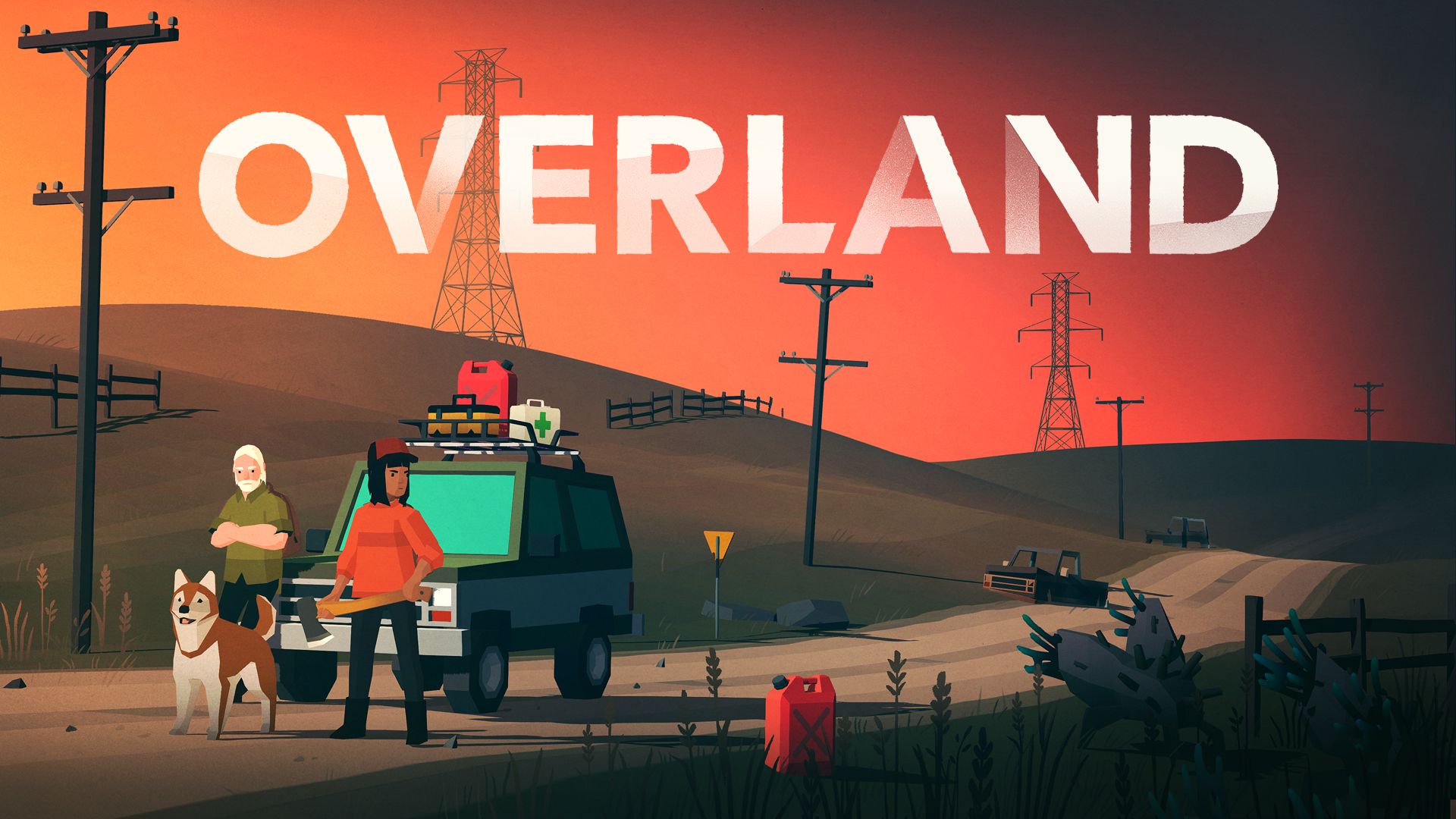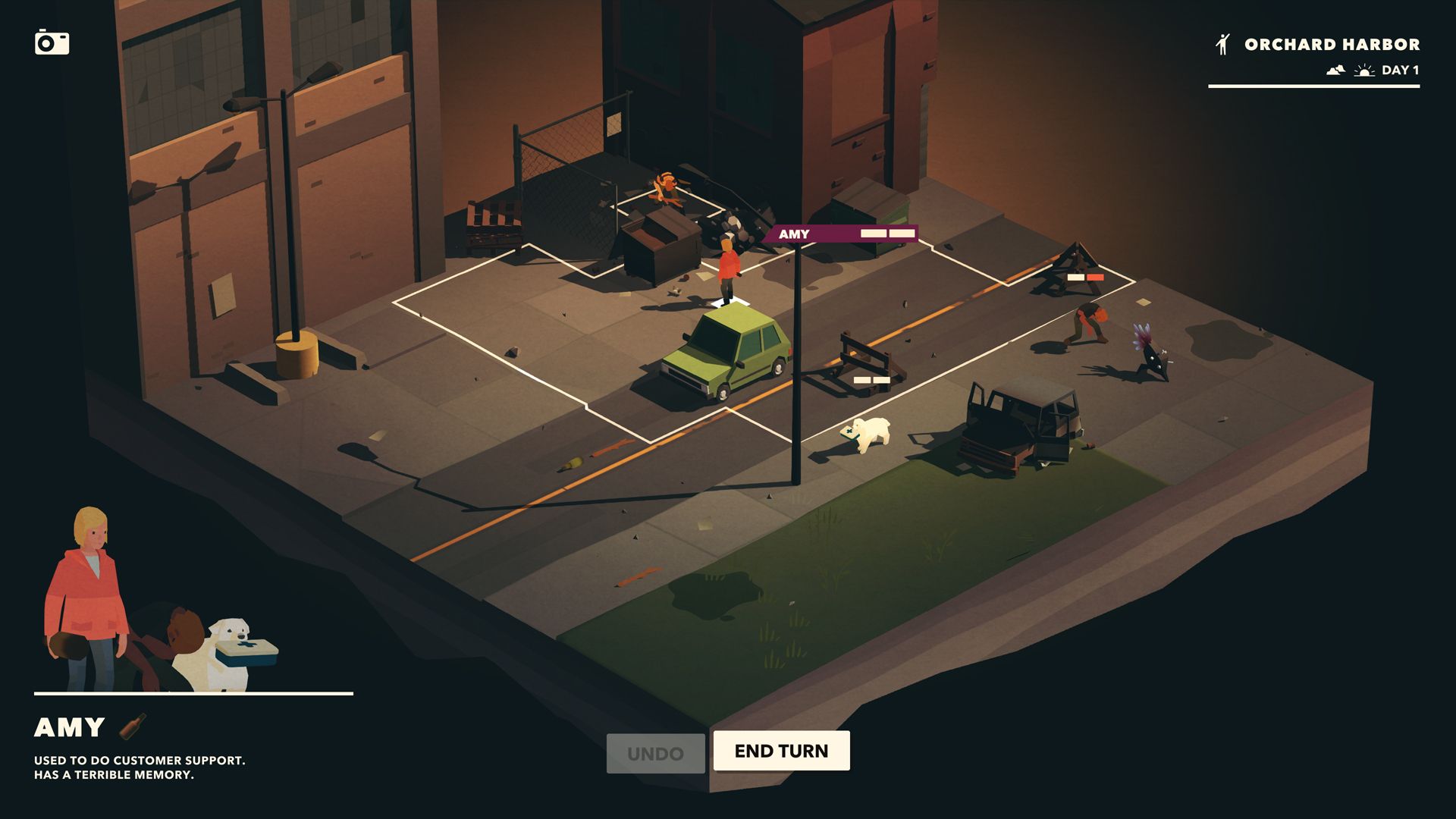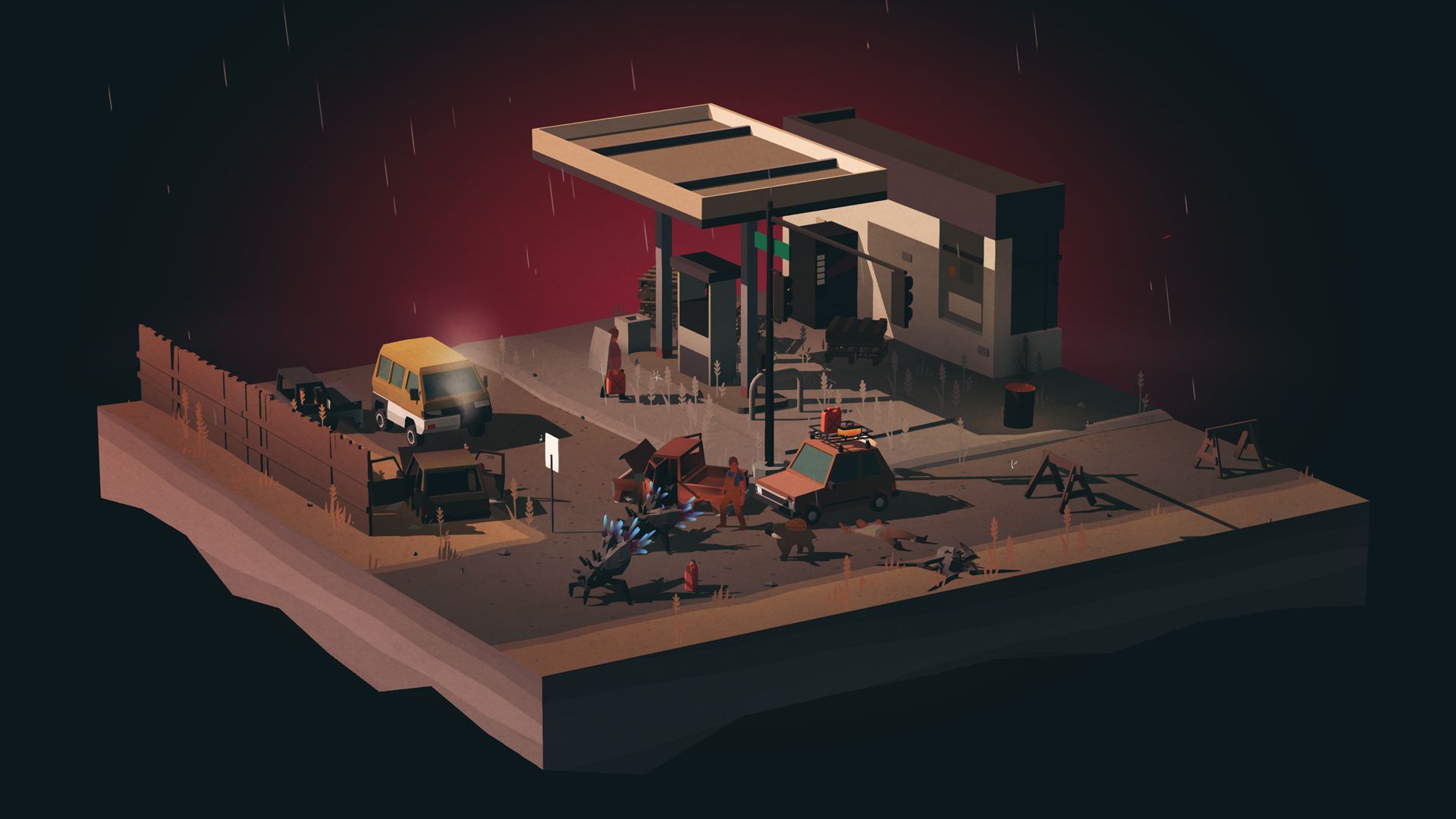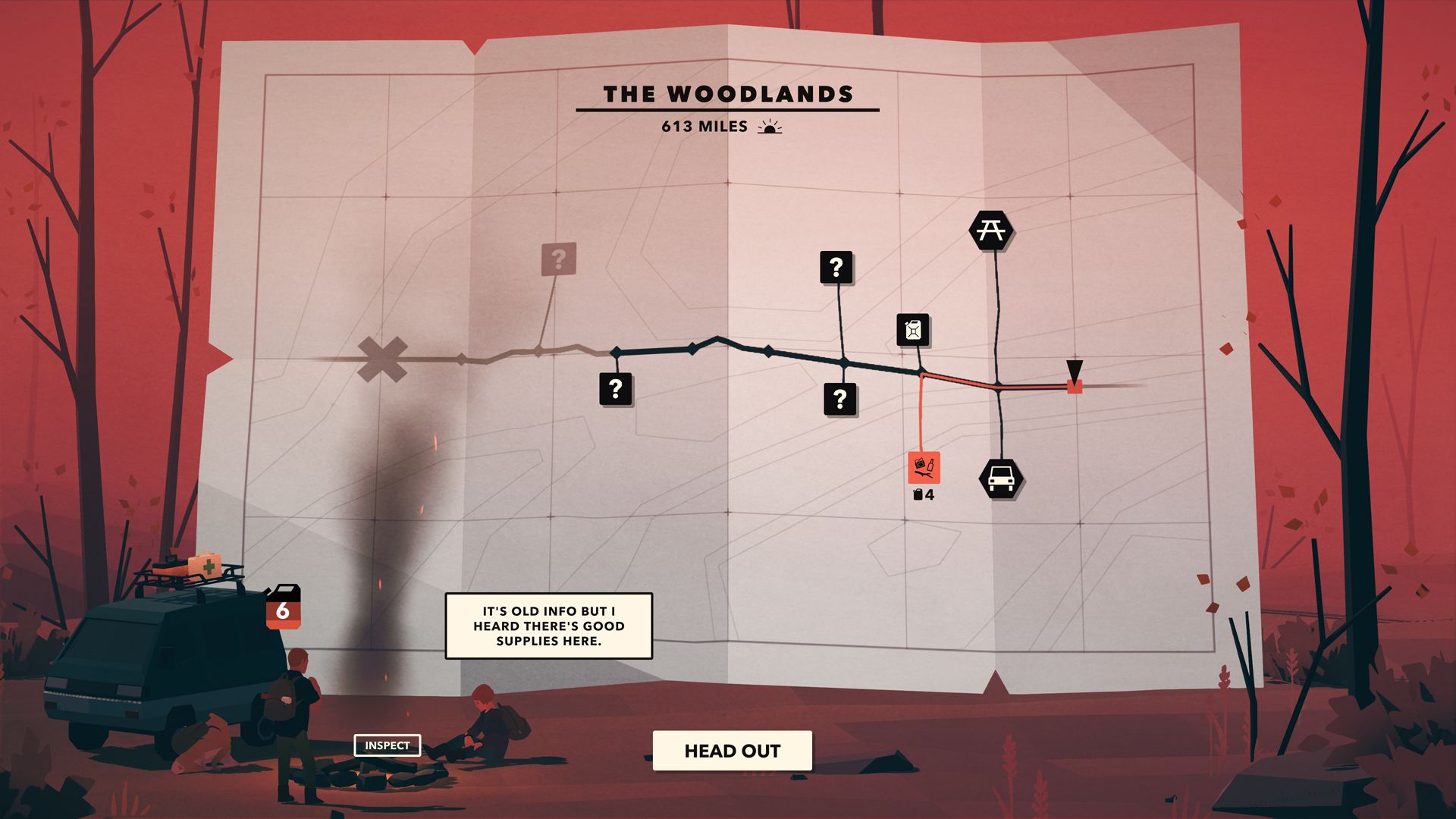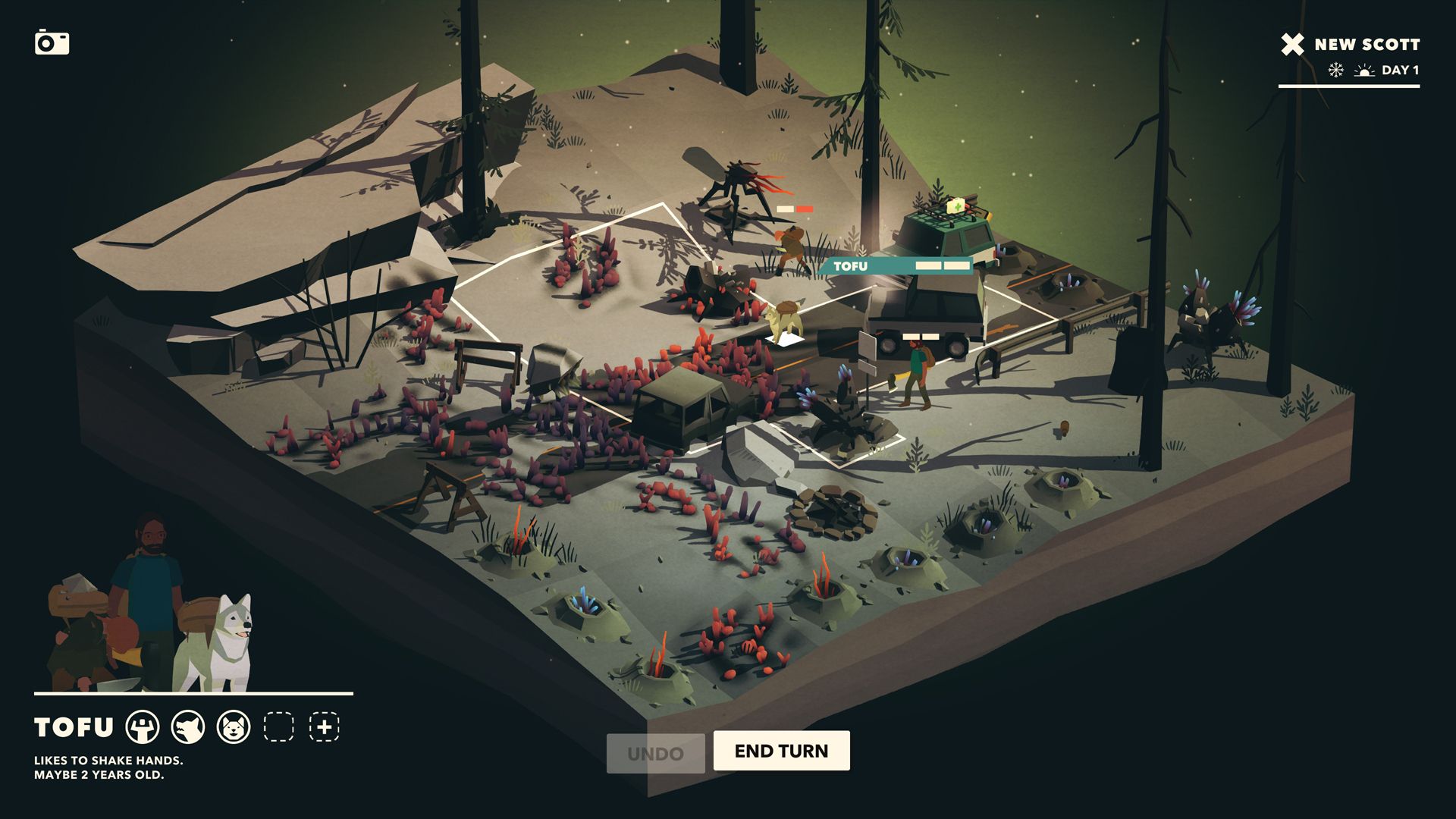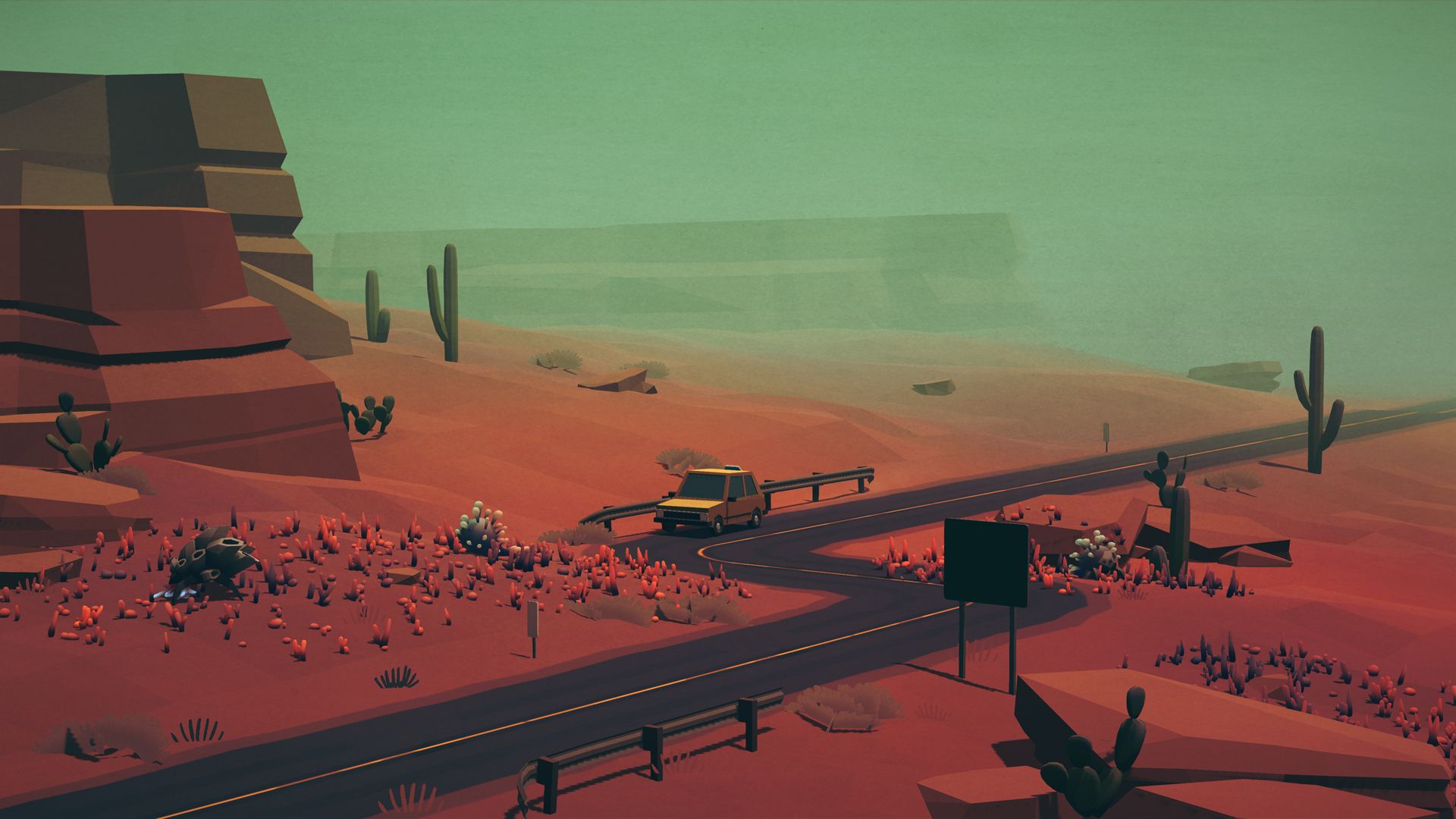Throughout the course of my numerous runs through Overland -- which, spoiler alert, often ended in the untimely demise of my survivors -- I couldn't help but think of the things I could have done differently if I just had a second chance. I could have decided to just make a break for it instead of trying to get an extra canister of gas; I could have kept my survivors together against a horde of enemies instead of splitting them up; I could have gone for more supplies instead of getting a new car. The situations where I saw what went right and what went wrong in my runs were clear, and despite my dozens of failed attempts at making it to safety, Overland kept making me retrace my steps to see just how far I could make it the next time, even if (or when) I was only bound to fail again.
While making tough decisions in an unforgiving environment is basically the bread-and-butter of most games set in the post-apocalypse, Overland from developer Finji (most well-known for titles like Night in the Woods and Canabalt) is a particularly striking and effective distillation of what makes survival games so compelling. Everything about Overland, from its art direction, to its turn-based strategy gameplay, is incredibly polished and kept to the bare essentials (in a good way), but it also forces you to consider every step that you make along the way while playing.
[pullquote]"Everything about Overland, from its art direction, to its turn-based strategy gameplay, is incredibly polished and kept to the bare essentials."[/pullquote]
For those unfamiliar with the game, Overland has been in development for several years by Finji, and in the majority of that time has been available in a "first access" state where alpha players could try out the game and provide feedback. With this week marking the full release of the game on consoles and PC, it's clear that the game has come a long way from its initial development state, and while it has a few rough edges here and there, Overland as a whole (and in its now completed state) is easily one of this year's most impressive indie games.
Overland puts players in charge of a group of survivors in the post-apocalyptic United States, where the country has been overrun by a species of mutated insect-like creatures. At the beginning of a new game, the player will start out on the East Coast and work their way across the country to the West Coast, where (presumably) safety will lie for the survivors from the mutated insect threat that already has devastated the rest of the US.
[pullquote]"Overland manages to keep each playthrough feeling fresh for players, as you'll more than likely need many runs to even have a chance of making it to the very end."[/pullquote]
Primarily a turn-based strategy game, Overland also mixes in heavy survival elements with a roguelike style of play. Each new game that players start is completely different, from your first survivor that you start with (each with their own short backstory and personality), to the pathways that are open to you, to the enemies, supplies, and obstacles that you'll face along the way. In this format, Overland manages to keep each playthrough feeling fresh for players, as you'll more than likely need many runs to even have a chance of making it to the very end.
While journeying to the West Coast, at numerous points players will have to choose from branching paths to decide where to take their survivors. Outlined on a map of the US, these paths each come with their own costs and challenges for players to determine where to go next. For example, players might be faced with the option to either stop at a nearby gas station to gather precious fuel for the next destination, or to journey a little further ahead for a brand new car and gear. In other instances, players might come across additional supplies or weaponry, or get the opportunity to have another survivor join the group (including some good boys) and increase the odds of survival.
[pullquote]"The player will start out on the East Coast and work their way across the country to the West Coast, where (presumably) safety will lie for the survivors."[/pullquote]
Just about every decision you make in Overland matters, as the game (purposefully) makes things extremely limited for the player in what they can carry, what they can do, and how many survivors they can take on at a time. By and large, your car can carry 3-4 survivors at a time, while most survivors can only carry an item or two while exploring. This is all combined with the fact that each survivor gets two action points each turn that govern everything they do, from movement, attacks, to searching for supplies. Overland emphasizes strategy over sheer will and brute force: even with the best gear and weaponry, each of your survivors can be taken down with only a few hits, making it crucial to carefully plan out your next move each turn.
That emphasis on survival and strategy plays out best through one of the most striking elements of Overland, which is its level design. Throughout the trip across America, each destination that players will stop at is laid out as a square, diorama-like grid that is filled with enemies, obstacles, supplies, and more for players to interact with. While each area itself is small and self-contained, the constrained nature of each level gives numerous opportunities to gather supplies or new gear while trying to also make it out alive and escape to the next area. Of course, the key obstacle that faces players in each area is the presence of mutated insects, which constantly chase after the survivors. While players can kill them with the right weapons or gear, the death of one insect will only draw more of them over subsequent turns, making it critical for players to not stay any longer in an area than they absolutely have to.
[pullquote]"The constrained nature of each level gives numerous opportunities to gather supplies or new gear while trying to also make it out alive."[/pullquote]
In this way, Overland feels less like a hardcore strategy game and more often like a puzzle game, with each of its procedurally-generated grids giving players a new challenge ahead. And as I played through Overland on Nintendo Switch, the small, self-contained design of each area makes the game incredibly well-suited to being played on-the-go in small chunks, combined with its beautiful art style that mixes low-poly simplicity with elegant details and environments.
While Overland itself is impeccably-designed with crisp visuals, the only downside that I had with the game's art style is that with the camera so zoomed out from the action, it can sometimes be a challenge to see smaller items in each area and figuring out what you can and can't interact with (especially pronounced when playing on a handheld Switch). This is also combined with the game's UI: it's sleek, ultra-minimalist, and does a great job at mostly staying out of the way of play, though at some points it definitely feels better-suited to being navigated with a keyboard and mouse versus a controller. Most of the time the UI is straightforward and serviceable, though at other points it can sometimes feel a bit finicky, such as trying to manage the inventories of your characters or vehicle.
Thankfully, Overland does include an Undo button that allows players to reverse their past couple actions during a turn, in the event of a mistaken input or decision. But this can sometimes feel at the cost of things being a bit trial-and-error in Overland, especially with the game's general lack of tutorials during play. Some players for sure will embrace the way that Overland lets players figure out its mechanics on their own terms, though perhaps in some cases there are certain portions of the game that I just wish were made slightly clearer and not so reliant on trial-by-death.
[pullquote]"Overland is easily one of this year's most impressive indie games."[/pullquote]
Despite these few qualms with the game's sometimes harsh nature, Overland in every other way builds a completely engrossing and tense experience out of having to make every move and turn count. As much as you might build up a connection to the survivors you encounter (especially the loyal dogs you can bring into your party), there's always the uneasy feeling while playing that, sooner or later, you might have to sacrifice one or more of them for the ultimate survival of your group. Overland plays off that tension perfectly in each area, as no matter how well-prepared or equipped you think you might be, things can go south extremely quickly with one wrong turn: perhaps as things should in an insect-infested post-apocalypse.
Like the best survival games out there, Overland doesn't by any means make things easy for players. It can be a brutally-challenging game that is often unforgiving, for better and worse. While certain elements of Overland may take players some getting used to, its mixture of survival, strategy, and roguelike elements makes for an experience that had me questioning my every move, and also had me ready to journey ahead just a little bit further each time.

